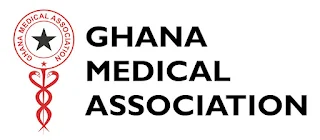The General Secretary of the Ghana Medical Association (GMA), Dr. Richard Selormey, has attributed the rising rate of emigration among health professionals in Ghana to severe economic hardship and the depreciation of the local currency, leading to widespread dissatisfaction within the country’s healthcare sector.

In an interview with Joy FM’s Super Morning Show on Thursday, Dr. Selormey emphasized that the low salaries and allowances received by Ghana’s healthcare professionals do not reflect the demanding nature of their work. This economic imbalance is forcing many professionals to seek opportunities abroad, further deepening the country’s brain drain in the medical sector.
“The economic situation in Ghana makes it almost impossible for an average doctor to afford basic needs like a car or a house,” Dr. Selormey noted. He stressed that financial constraints are pushing health professionals to question their future in Ghana, leading many to consider emigrating to countries where they can earn a more sustainable income.
The GMA Secretary expressed concern that, despite their dedication, many professionals feel their contributions are undervalued. “People are asking themselves, ‘After all my service to Ghana, what do I gain? How do I survive on a salary that can’t even afford me a home?’ This frustration is driving many doctors and nurses to relocate to countries where their work is appreciated and well-compensated.”
Dr. Selormey further highlighted the burden of healthcare costs, which has worsened as many healthcare workers are now forced to pay out of pocket for their own medical treatment, often within the same hospitals where they work. This situation underscores the need for better healthcare policies that support medical professionals financially and professionally.

To combat this growing issue, Dr. Selormey called on the government to introduce better incentives and non-financial benefits for health professionals in Ghana. He urged policymakers to implement solutions that include salary increases, subsidized housing, healthcare sponsorship programs, and opportunities for professional development.
Dr. Selormey also voiced his frustration over delayed government action on a rural healthcare initiative that could alleviate some of the financial pressures faced by health workers. He stressed that the Ghana Medical Association has had to step in to provide temporary relief for its members.
As Ghana’s healthcare system continues to grapple with these economic challenges, addressing the root causes of health professionals’ dissatisfaction will be crucial to retaining talent and ensuring the long-term stability of the country’s medical sector.
Source: myjoyonline.com



